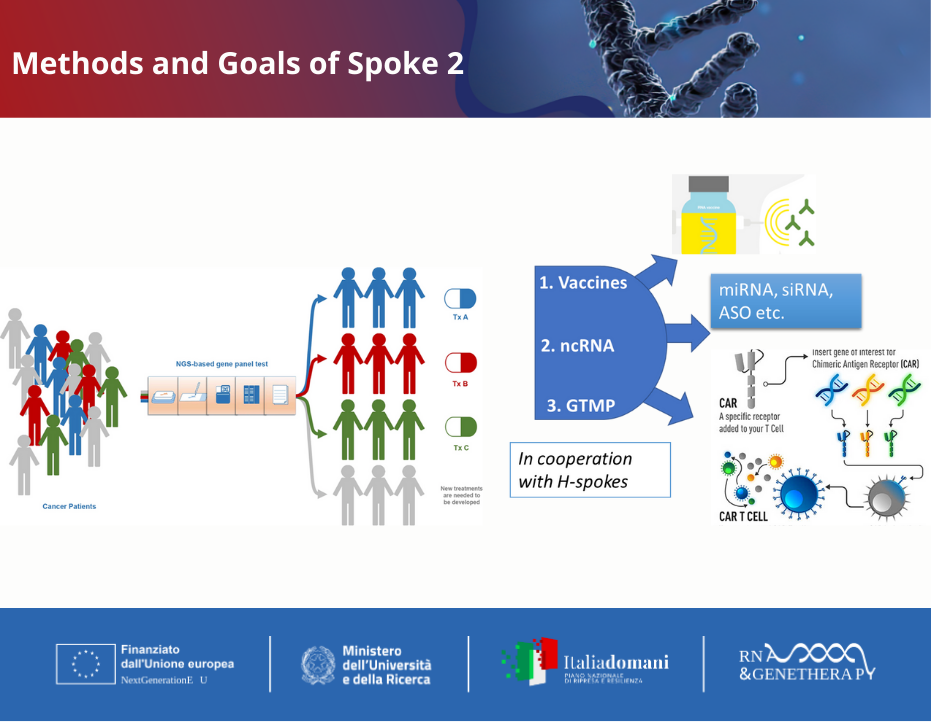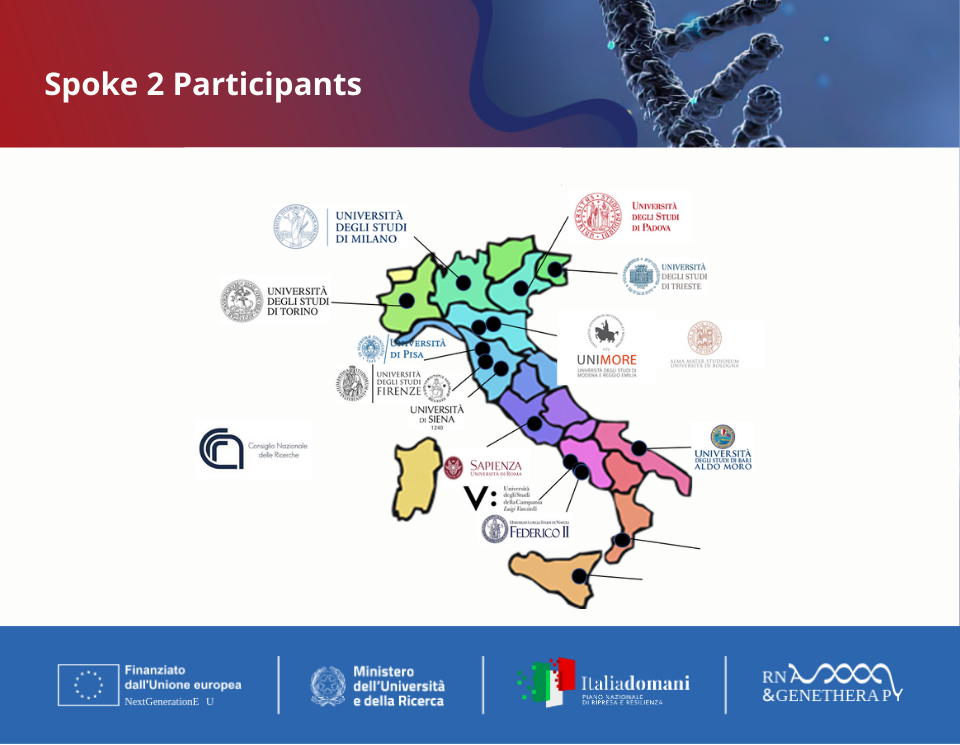Padua, 25 July 2024 – Led by La Sapienza University of Rome, Spoke 2 includes the Italian National Research Council (CNR), 15 public universities, and 2 private companies.
Spoke 2 research focuses on cancer.
Characterized by the uncontrolled proliferation of cells, cancer cells infiltrate and alter the function of healthy tissues and organs. Scientists have long sought to uncover the underlying factors that cause cancer. First proving that cancer may develop due to exposure to external physical, chemical, or biological factors. Research thus included internal factors such as genetic predisposition and epigenetic mechanisms, which regulate gene activity without changing its DNA sequence. All factors may lead to disruptions in tumor suppressor genes whose function is to slow down cell division or tell cells to die at the right time, or proto-oncogenes whose function is to regulate cell growth and differentiation of normal cells.
Capable of promoting and inhibiting gene expression, the human body holds a dynamic balance to ensure that cells maintain their normal identity, thus preventing them from becoming cancerous cells. Generally, an accumulation of multiple genetic mutations can lead cells to become cancerous. Although inherited mutations can increase the risk of cancer, it is important to emphasize genetics are just one component. Researchers must also consider environmental and metabolic factors as well.



